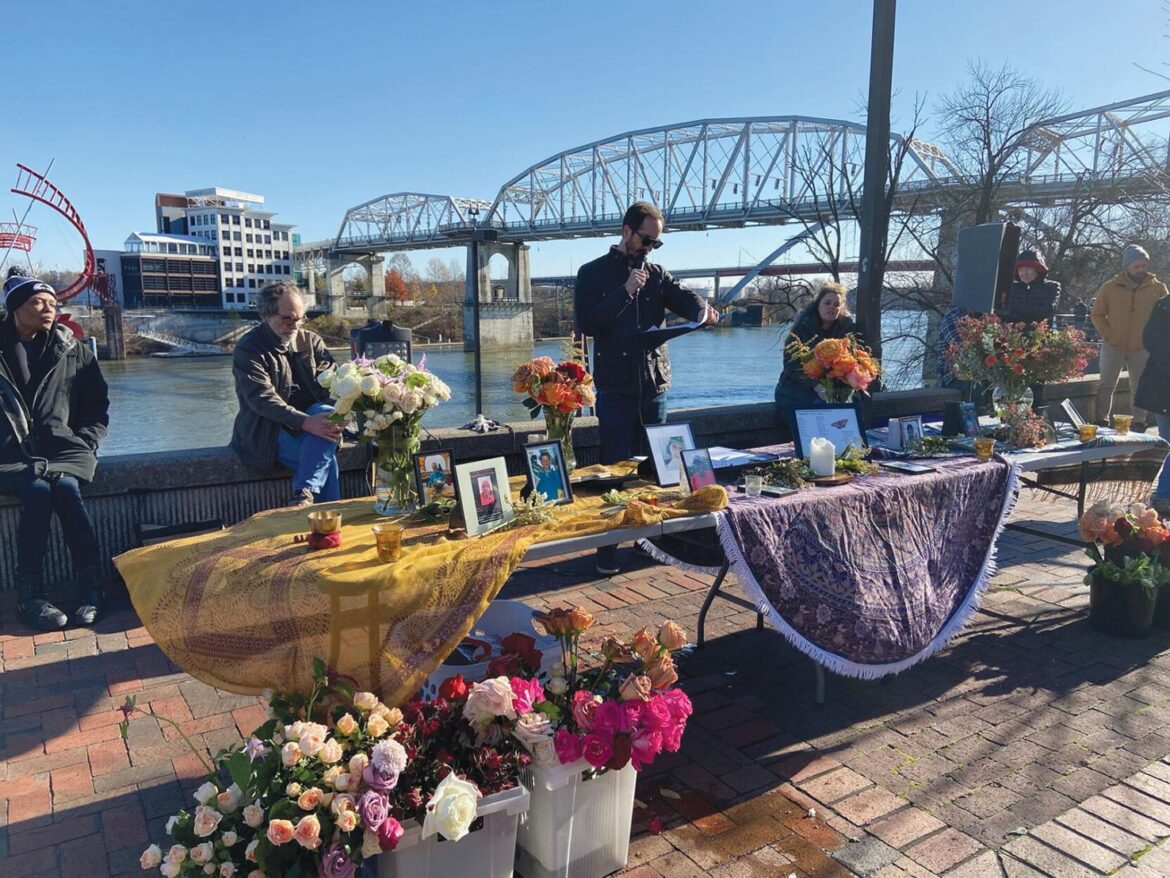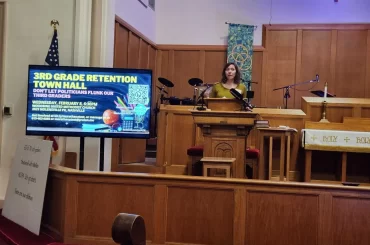176 names were read aloud at this year’s annual homeless memorial, representing persons who passed away in Nashville after having experienced homelessness.
The homeless memorial, which this year was held on December 17, always takes place on or around the winter solstice, the year’s longest night. This represents the protracted evenings that people spend in the streets. The Tara Cole memorial bench at Riverfront Park serves as the focal point of the event every year. Cole was sleeping on a wharf in 2006 when two guys rolled her into the Cumberland River, where she perished. Cole was homeless at the time.
Another regrettable repeating topic at these gatherings: People experiencing homelessness are more likely to be victims of violent crimes and pedestrian accidents than the general public, according to Bobby Watts, CEO of the Nashville-based National Health Care for the Homeless Council.
Watts told the Scene, “You don’t have that option [if you are homeless]; the first thing we do when we get home is we shut the door and lock the door. Homeless people are significantly more likely to die from violence than they are to perpetrate violence.
The median age of individuals on this year’s list is 54, which is in line with the national average for homeless people’s life expectancy. The average life expectancy in the country is about 76. Increased rates of illness, especially cardiovascular problems, and overdose are blamed for this disparity. Since cancer is more likely to be discovered later in the population without housing, it poses an increased danger.
According to India Pungarcher, an advocacy and outreach worker with Open Table Nashville, “death causes are quite consistent with populations of people who are not experiencing homelessness.” “They’re just passing away 20 years sooner than someone who isn’t homeless.”
Pungarcher, who oversees the list’s annual compilation, took on the duty of documenting medical examiner data this year instead of leaving it to the Metro Homeless Impact Division. It was put together by Open Table Nashville, the indigent burial program of Metro Social Services, the Nashville Rescue Mission, Room in the Inn, Salvation Army, and other outreach personnel. Pungarcher claims that while a lack of formal monitoring from the city may render the list lacking in terms of reason and date of death, it may also have other advantages. Word-of-mouth can find persons who an automated system might overlook by using outreach workers in data collecting.
For better or worse, public leaders have been considering homelessness this year. Speaking at the event on Saturday were representatives from Metro, including Councilmember Freddie O’Connell, Chair of the Homelessness Planning Council Jaha Martin, and April Calvin from the Metro Homeless Impact Division. A measure making camping on public property a crime and near or beneath state roadways a misdemeanor was approved by the state assembly in April. The Metro Council authorized a $50 million strategy to combat homelessness in October. The intention of closing the camp at Brookmeade Park by January 1 was stated in a November statement by Mayor John Cooper’s administration.
There will be fewer fatalities in 2022 than there were last year (194). Watts said that utilizing COVID-19 relief monies to temporarily house individuals who are homeless has had a beneficial long-term effect, but he is worried that if those funds run out, a housing-first approach would become less feasible.
People often claim that nothing works and that everything is hopeless, but Watts insisted that this is not the case. “Compared to past years, Nashville housed more individuals and helped more people find homes.” The issue is that more individuals are losing their homes due to the economy, rising rents, and other problems.



